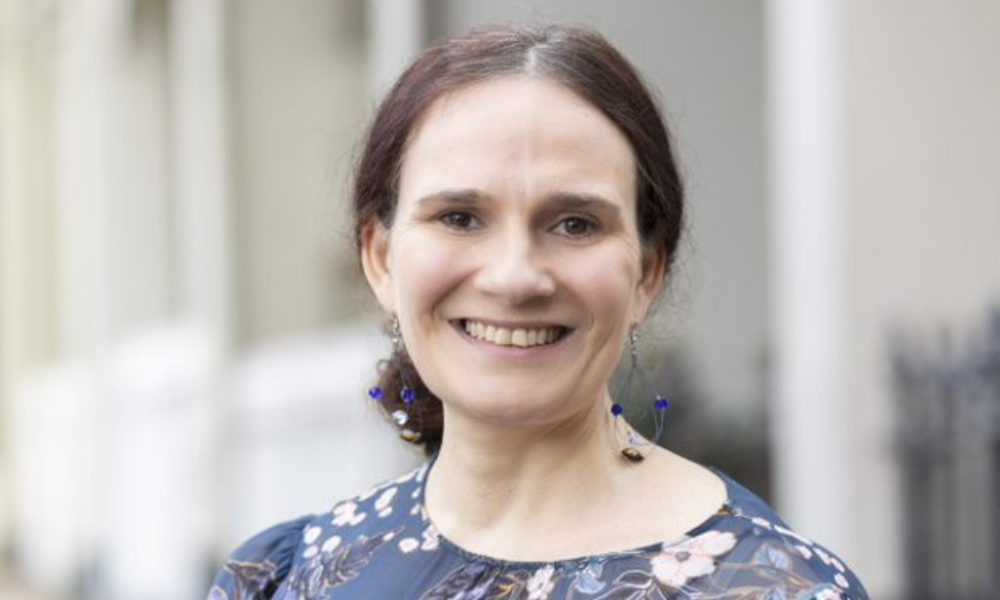
Alice Hanna sits down with HRD to talk culture and recruitment in the construction industry

Alice Hanna has worked in male-dominated industries for most of her life. Currently the people and culture manager at Melbourne construction company Kapitol Group, she has also worked in senior HR roles for another construction company and for an IT company and a mobile app developer, as well as a time spent as a consultant.
A recent recipient of the Australian HR Manager of the Year at the HRD Awards 2022, Hanna won the accolade for transforming recruitment and onboarding, and Kapitol’s innovative graduate program. Hanna is also a committee member of Women in Design and Construction and has worked hard to attract women into the profession and make Kapitol a place where women feel comfortable to come to work. Recruitment is about making sure Kapitol employs people who don’t just tick the technically proficient box but fit into the values of the company, she says.
“Sometimes a manager will get excited about a job candidate with good experience but it’s about getting them to look more broadly and question whether they are going to fit into and add to our culture,” Hanna says.
At the heart of the recruitment process, storytelling helps to describe company culture. Interviews can be a lot of Q&A, but Hanna says stories are really important in terms of setting the culture and values of the organisation.
“We have a culture of owning our mistakes and sharing them as lessons learnt. No one will get in trouble for making a mistake, as long as you own up to it, share it and don’t make the same mistake over and over again,” she says. “It’s all well and good to say that but a candidate may doubt the veracity of it.”
To illustrate her point, Hanna tells a recent story in candidate interviews about a manager who made an expensive mistake on a project.
“I’m sure he was worried what the response of senior management was going to be,” she says. “I’m sure senior management’s initial reaction was not good. Instead, the senior manager sat him down and discussed what had happened to ensure that it didn’t happen again. They identified both process and training gaps were at the heart of the issue.
“At the next senior level meeting, the employee got up in front of the entire management team and talked through a PowerPoint on how we made a stuff-up. Afterwards everybody was so grateful for his sharing it so that they could take [the learning experience] back to their teams. The message is: it’s OK, it’s real, we’re not perfect. That’s how we bring those key cultural pieces to life with stories.”
Once someone joins the company, the onboarding is crucial to their experience. It needs to be not just a smooth process but one that ensures people understand the culture of the business: what is expected from them and what they can expect from the start.
“I spend a lot of time communicating why we have the vision, what it means, how people can contribute to the vision, how they can measure themselves against it, why it’s real. I give the example of a senior executive team meeting, if a decision has to be made between option A and option B, the question will be asked: which one is more aligned to our vision? That’s not a tick box exercise. That is the directors and being more and more committed to the vision every day,” Hanna says.
“Also with our onboarding process, we go through our values and we have really detailed behaviours we want to see and behaviours we don’t want to see. We go through these in quite a lot of detail, but we also help people understand that nobody is perfect, including our leaders,” she says. “I tell new recruits about the behaviours we are not great at yet as a company, right up to the director level. We encourage them to understand these behaviours so they do more of the Dos and less of the Don’ts every day and we can all move collectively towards best practice. And I tell some stories about that – right up to the directors – where I have had to call out their behaviour when they are not acting in line with our values.”
Having the courage and conviction to confront the senior leadership team on behaviours can be something that HR struggles with.
Hanna admits she still finds it “terrifying” and continues to get better at doing it. She has been lucky as her fellow directors ask for feedback and give her permission to call them out in public if their values aren’t aligned. But she’s very aware that this isn’t the case at many companies, including some she has worked for in the past.
“I think it helps that I worked in consulting for a time. I was being paid to tell a business what was wrong with their culture and often it involved putting a mirror up to the top, because that’s where the problem was coming from,” Hanna says. “It’s not easy, though and I have to keep reminding myself that is how cultures go from good to great – but also how they can spiral downwards. If only lip service is paid to culture, then engagement goes out the window straight away.”